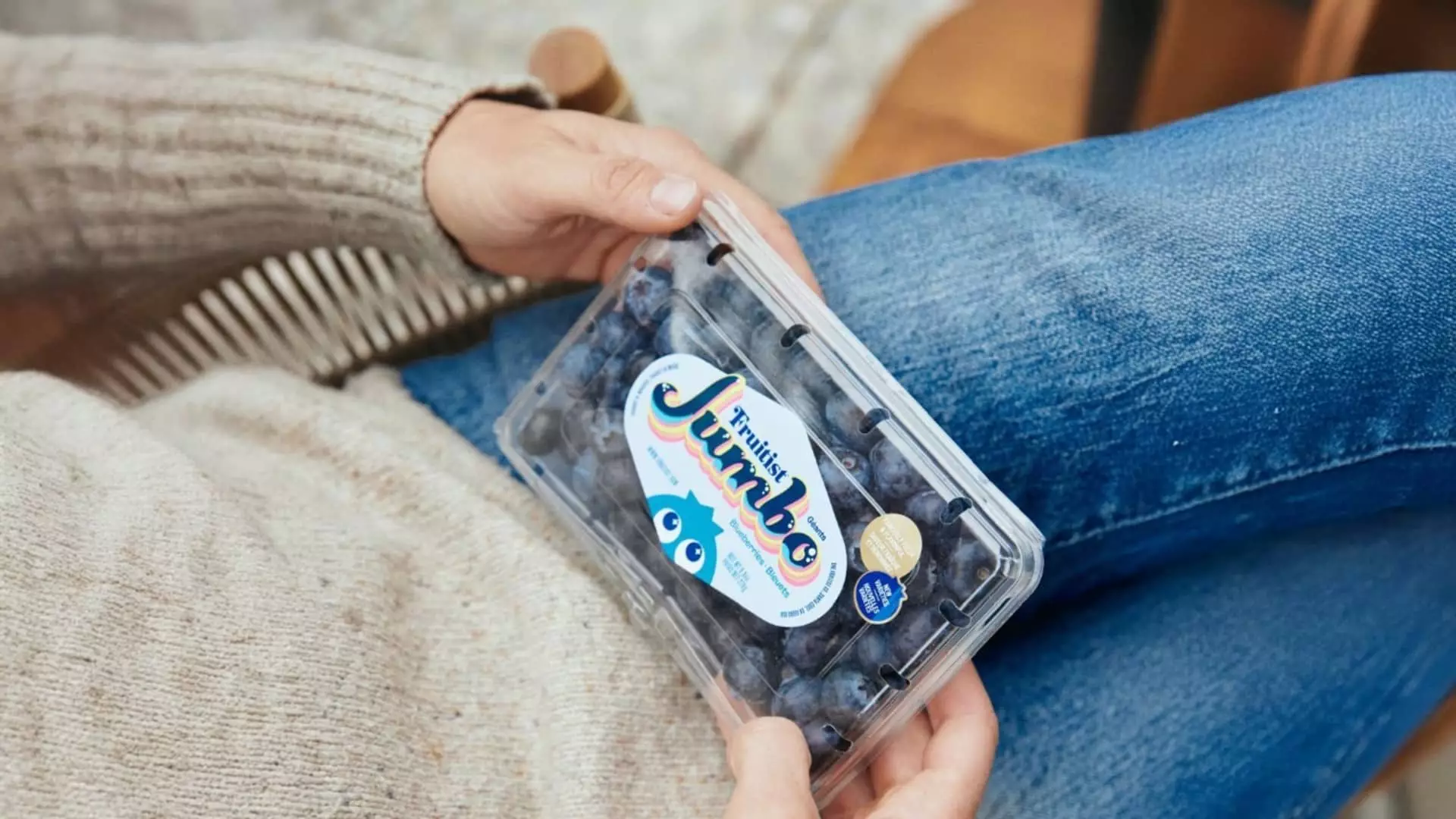In a remarkable transformation that has enchanted both consumers and investors, the berry startup Fruitist has catapulted its annual sales to over $400 million. Founded in 2012, the company originally operated under the name Agrovision but has recently undergone a rebranding in an effort to better align with its product identity. Moving beyond simple cultivation, Fruitist pioneers a multifaceted approach to berry production, primarily known for its jumbo blueberries that promise longevity and superior quality. This ambitious shift has not only captured consumer interest but also attracted more than $600 million in venture capital, with notable contributions from heavyweight investors like Ray Dalio, the founder of Bridgewater Associates.
Changing the Narrative on Snacking
One cannot ignore the strategic pivot Fruitist has made by branding its berries as ‘snackable.’ This is a shrewd move, especially considering the current market dynamics where healthier snacking options are increasingly prioritized. The appeal of juicing up the berry market is accentuated by the remarkable rise in consumer preference for health-oriented snacks. Amidst the growing success of competitive snack alternatives like chips and pretzels, Fruitist has creatively positioned itself at the forefront, catering to the burgeoning desire for nutritious options. In this climate of health-conscious living—exemplified by the surge in popularity of GLP-1 drugs and initiatives like Health Secretary Robert F. Kennedy Jr.’s “Make America Healthy Again” agenda—Fruitist is acutely aware of its advantageous location within a rapidly evolving food landscape.
A Solution to Berry Roulette
Fruitist’s co-founder and CEO, Steve Magami, has expressed a vision that resonates with many frustrated grocery shoppers: the unpredictability of berry quality. Dubbed “berry roulette,” this issue arises from a disjointed value chain inhabited by legacy producers who often undermine product quality. The traditional model—comprised of small growers, packers, and distributors—often leads to inconsistent quality and consumer disappointment. Fruitist aims to disrupt this model by adopting a more integrated approach, managing its own farms across diverse microclimates, from Oregon to Egypt. This innovative strategy ensures that the berries are consistently high-quality and capable of lasting beyond the typical shelf life associated with conventional offerings.
The Science Behind the Sweetness
What sets Fruitist apart isn’t just its unique marketing or ambitious growth; it’s the application of technology to enhance quality. Machine learning is being used to optimize harvest times, ensuring that fruits are picked at their peak. This cuts down on waste while reinforcing the company’s commitment to quality—a notable feat for a sector often plagued by stale and subpar produce. Furthermore, their meticulously designed supply chain boasts significant investments in infrastructure, such as on-site cold storage that prolongs the freshness of berries. As Magami demonstrates, even after three weeks in the refrigerator, their jumbo blueberries remain as vibrant as when they were picked—a testament to their value proposition.
Facing the Future with Ambition
As Fruitist’s operations expand, the company is eyeing the lucrative cherry market, with plans to start deliveries from their Chilean farms by early 2026. This ambition extends beyond mere dreams; it is backed by a solid financial strategy fueled by diligent planning and collaboration with top-tier investors. While the idea of going public has crossed the company’s mind, potential market challenges loom large. Global trade tensions and variable tariff rates introduce an element of uncertainty, yet Magami remains undaunted. By investing heavily in their U.S. operations, Fruitist aims to insulate itself from potential adverse impacts while ensuring consistent supply year-round.
Market Sentiment: Optimism Amidst Volatility
A significant pattern in the market reveals increasing interest in consumer-oriented companies experiencing robust growth, even amidst broader economic apprehensions. The contrast between companies like Dole, which has recently seen shares rise, and others postponing IPOs due to market instability is notable. Established firms have demonstrated that growth is achievable despite external pressures, suggesting optimism is not just the business mantra but a viable strategy. As Fruitist navigates its future — particularly if it decides to undertake an initial public offering — maintaining this groundbreaking momentum will be crucial for long-term viability and success.
Fruitist is a paradigm of how innovation, quality, and strategic marketing can redefine a market segment long dominated by complacency. However, navigating the complexities of economic conditions, consumer trends, and technological advancements will be pivotal as the company charts its course ahead.

